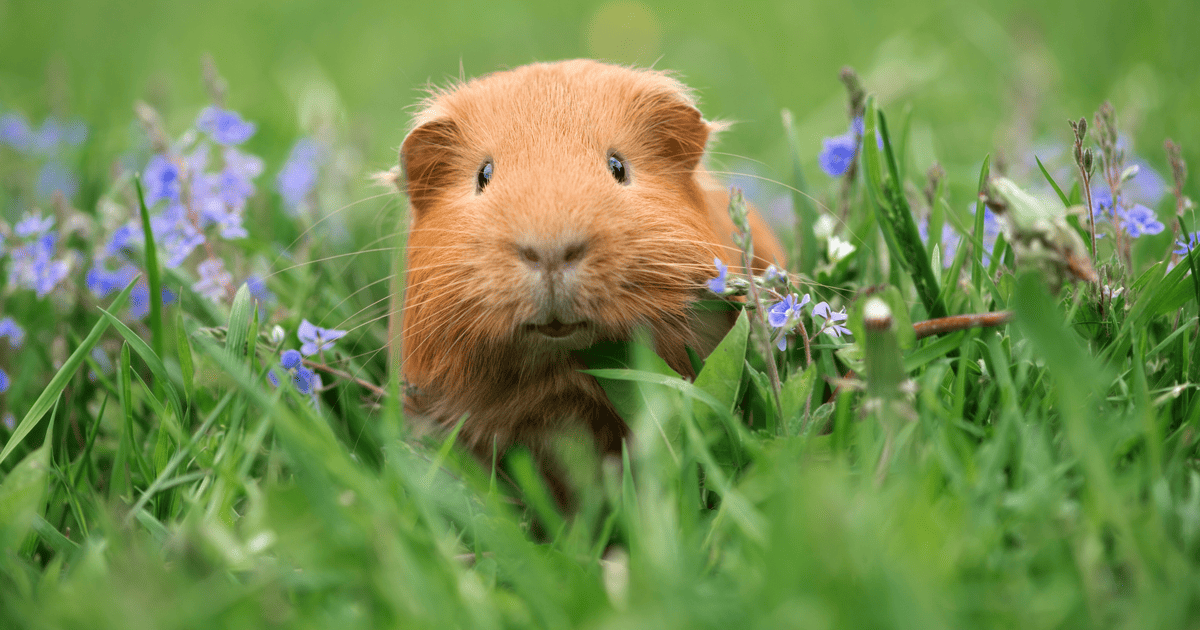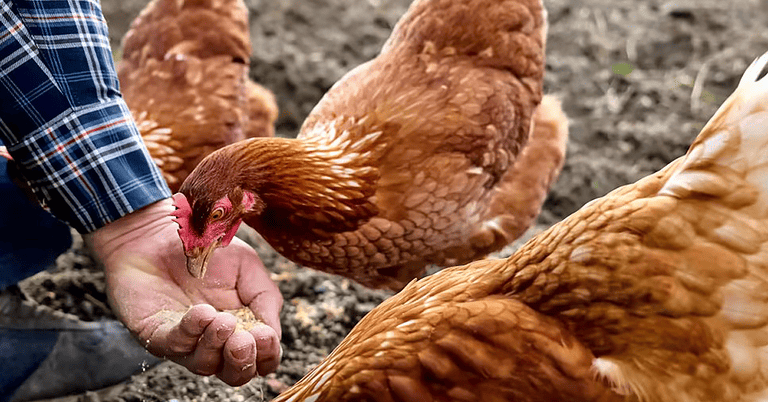Why Is My Guinea Pig Shaking
Ever noticed your guinea pig shaking and wondered, ‘Why?’ You’re not alone. Shaking could be communication, a response to environmental factors or stress, or even indicate a health issue. It’s crucial you understand what’s going on with your furry friend.
This article will help unravel the mystery behind this behavior and provide tips on ensuring their comfort and well-being. Let’s dive in!
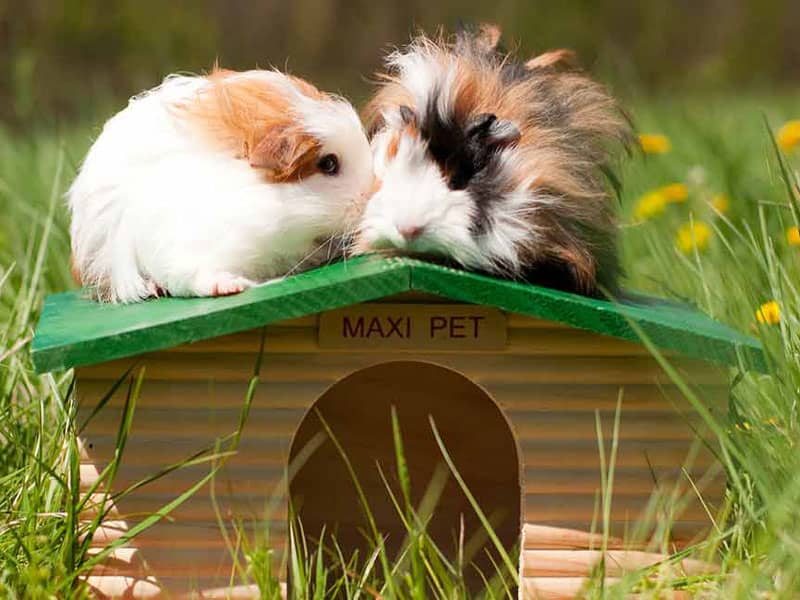
Understanding Guinea Pig Behaviour: Why Does My Guinea Pig Vibrate?
Understanding your guinea pig’s behavior can be fascinating, especially regarding their unique vibrations. You might have noticed how their vibrations could indicate happiness or sometimes confusion between the ‘purr’ sound and shaking.
Changes in these vibrations based on environment and frequent shaking in male guinea pigs are topics of interest you should know about as a responsible guinea pig owner. It is also essential to know when it’s a good idea to consult a veterinarian about your pet’s vibrations. (Read Miracle Grow Killed My Grass)
How a Guinea Pig’s Vibrations May Indicate Happiness
When your guinea pig vibrates, it might display signs of joy or excitement. It’s their unique way of communicating a positive emotion. If your guinea pig seems content and makes happy guinea pig sounds, they’re likely showing affection.
Distinguishing the ‘Purr’ Sound from Shaking in Guinea Pigs
You’ll need to learn to distinguish between a purr and a vibration in your pet. If you’re wondering, ‘Why does my guinea pig vibrate when I pet him?’ it’s likely he’s expressing contentment.
Male guinea pigs tend to ‘purr’ more often, but if your guinea pig starts making vibrating sounds unexpectedly, they may communicate discomfort or fear. Always stay attentive to what your pet guinea pig is feeling.
Noticing How Your Guinea Pig’s Vibrations Change Based on the Environment
It’s crucial to see how your pet’s vibrations might change depending on their environment. If you spot your guinea pig shivering, it could be due to the room’s temperature or direct sunlight exposure. Moving them to a warmer location may help.
They are constantly noticing how your guinea pig’s vibrations change based on the environment can reveal underlying health issues that guinea pigs might face.
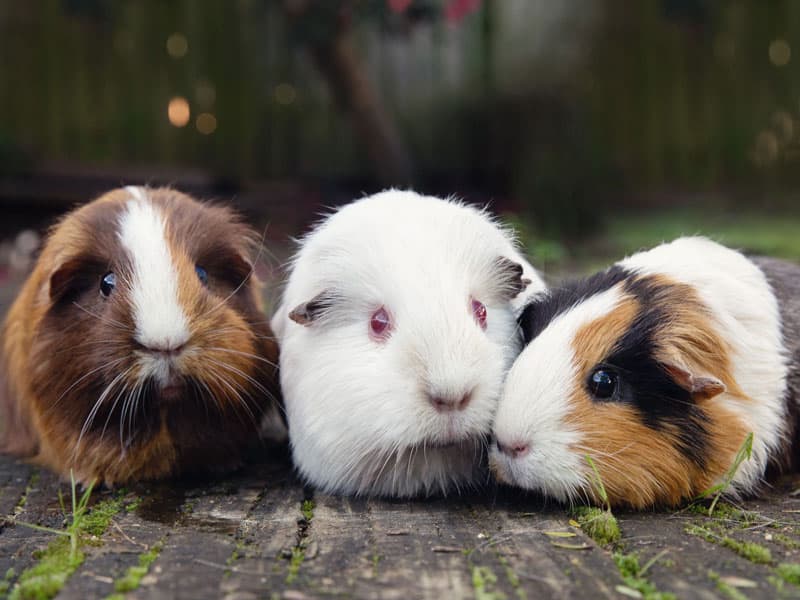
Why Male Guinea Pigs May Shake More Frequently
Male critters often vibrate more due to dominance displays or mating rituals. As a guinea pig owner, you might wonder, ‘Why is my guinea pig shaking?’ If it’s your male guinea, understand the shaking may frequently be his trying to show dominance. Prey animals like guineas use such behaviors for these purposes.
However, other possible reasons exist too – health concerns being prime among them. (Learn How Long Can Ball Pythons Go Without Water)
When It’s A Good Idea To Consult a Veterinarian About Your Guinea Pig’s Vibrations
Should your furry friend start vibrating excessively or along with other signs of distress, it’s likely time to consult a vet. You don’t want your guinea pig suffering from something more serious. Taking your cavy to a veterinarian if the shaking disappears is best. Depending on the situation, consider moving its habitat for comfort.
Medical Reasons: Could My Guinea Pig Be Shaking Due To Health Issues?
You may notice your guinea pig shivering and wonder if it’s a sign of a health condition. Regular vet check-ups are crucial for the early detection of common health conditions that can cause this symptom, helping you understand when to take your pet in for professional care.
It’s also important not to overlook the impact of environmental factors like temperature on your pet’s well-being, as these could contribute to shivering; understanding what to do if the shivering persists is vital to navigating potential health issues in guinea pigs.
Common Health Conditions in Guinea Pigs That Can Cause Shivering
Common health conditions in guinea pigs that can cause shivering include respiratory infections, ear infections, and digestive issues. If you ask, ‘Why is my guinea pig shaking,’ it could be a sign of illness. Keep your guinea pig warm and dry thoroughly to avoid catching a chill. Provide plenty of places to hide. Remember, shivering can also be positive or negative normal behavior.
The Importance of Regular Check-Ups With a Veterinarian
It’s crucial to schedule regular vet check-ups for early detection and treatment of any health issues that could cause your pet distress. If you’re wondering, ‘Why is my guinea pig shaking?’ remember, these gentle creatures can suffer from stress or illness.
Regular visits will keep them away from such troubles, ensuring their well-being. Start petting, hand feeding, and read similar posts for more tips on caring for two males. (Read Scotts Ultrafeed Vs Green Max)
When It’s Best To Take Your Pet To The Vet: Understanding Warning Signs
Now that you understand the importance of regular vet visits let’s focus on understanding warning signs. If you’ve found yourself asking, ‘Why is my guinea pig shaking,’ it’s best to take your pet to the vet.
Their discomfort might be from loud noises or a new environment; consider moving them to a quieter area. Keep their habitat around 65-75 degrees Fahrenheit, primarily if housing two females together in New Guinea.
Don’t Overlook the Impact of Temperature: Factors That Could Make Your Guinea Pig Shiver
Don’t forget; if your furry friend starts to shiver, it could be due to a temperature change. Unlike a cat or dog, guinea pigs are much more common to react physically to the cold. You’ll likely hear them chirp around the female during floor time. Shaking can also occur due to loud noises or stressors, so always keep an eye out and provide a comforting environment.
Navigating Shivering in Guinea Pigs: What to Do If Shivering Doesn’t Go Away
You’re probably wondering what you should do if your pet’s shivering doesn’t seem to stop, right? First off, don’t panic. Ensure they’re warm and comfortable. Look for any other signs of discomfort or illness.
If the shaking persists, don’t hesitate to consult a vet. It’s essential not to overlook these signs as they could indicate underlying health issues.
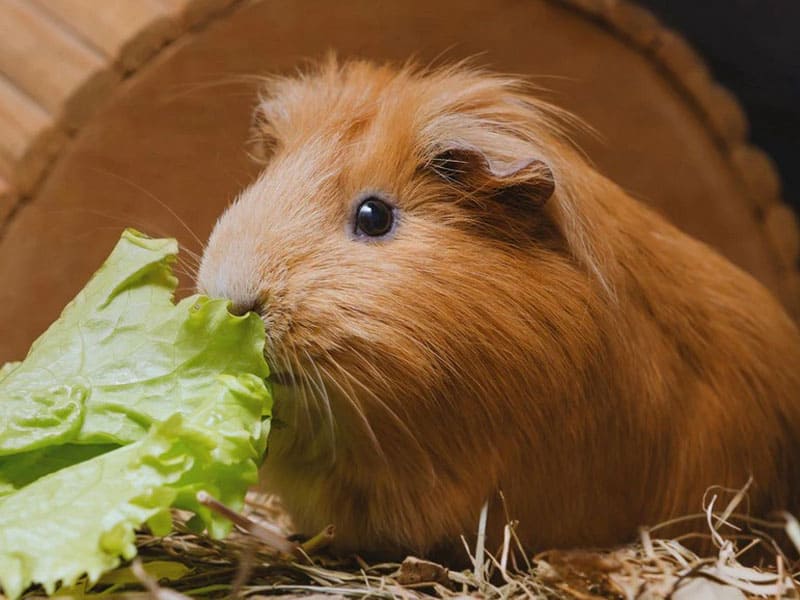
Environmental Causes: Why Your Guinea Pig Could Be Shaking From Its Surroundings
As a guinea pig owner, you’ve likely noticed your little friend shaking or vibrating and wondered what it means. Our discussion delve into the various factors that could cause this behavior, from loud noises to temperature changes and even the influence of other guinea pigs.
We’ll help you distinguish between shivering and vibrating, interpret different reactions, understand the role of temperature in keeping your pet warm, and explore how cavy companions can impact shaking behaviors.
Examining the Effects of Loud Noises On Your Guinea Pig’s Shaking
Loud noises trigger shaking in guinea pigs, indicating they’re scared or stressed. This is a natural response to fear, as they’re prey animals. You should keep their environment peaceful and quiet. If unavoidable noise scares your pet, add white or soft music to buffer it. Always approach your guinea pig calmly to prevent them from getting frightened.
Is Your Guinea Pig Shivering or Vibrating? Interpreting Different Reactions
It’s essential to differentiate between your pet’s shivering and vibrating, as these reactions can indicate different emotions or health states. Shivering may suggest your guinea pig is cold or unwell while vibrating often signifies excitement or fear.
Notice accompanying behaviors like eating habits and overall activity. If you’re uncertain or concerned, it’s always safe to consult with a veterinarian for advice. (Read Compost Or Peat Moss For Overseeding)
Considering the Role of Temperature: Keeping Your Guinea Pig Warm
Keeping your pet warm is crucial, as fluctuating temperatures could lead to discomfort or even illness. Ensure your guinea pig’s cage isn’t near drafts or air conditioning vents. Use a thermometer to monitor the cage’s temperature, aiming for around 65-75 degrees Fahrenheit. Heated pads are an option, but it’s essential they can move away from the heat if they choose to prevent overheating.
Cavy Companions: How Other Guinea Pigs Can Influence Shaking
You’re likely to notice that the presence of other cavies can influence whether your little pet starts trembling or not. This could be due to social anxiety, dominance disputes, or excitement. Monitor their interactions and ensure they have enough space to feel comfortable. Understanding and attending to your guinea pig’s emotional needs is crucial to their care.
Emotional Triggers: How Emotion Contributes To Your Guinea Pig’s Shaking
You must understand and interpret your pet’s moods as a guinea pig owner. We’ll delve into the fascinating world of guinea pig emotions, focusing on how you can assess whether your furry friend is experiencing joy or fear.
We’ll also explore their social nature, specifically how shaking relates to their interactions. Additionally, we’ll unpack your guinea pig’s emotional responses when exposed to new environments to better comprehend and cater to their needs.
Assessing Your Pet Guinea Pig’s Mood: Joy vs. Fear
Understanding your guinea pig’s mood is essential, as shaking can signify joy or fear. Look for other behavioral cues: if they’re playfully hopping around, they’re probably happy. If they’re hiding or seem tense, it could indicate fear.
Understanding the Social Nature of Guinea Pigs: Relation with Shaking
Understanding your furry friend’s social behavior is crucial, as it could shed light on why they’re exhibiting specific actions like trembling or shaking. Shaking can signify dominance, fear, or even happiness in guinea pigs. Observing their interactions with other guinea pigs and environmental changes is essential to help decode their behavior. Always consult a vet if you’re worried about excessive shaking.
Exploring a Guinea Pig’s Emotional Response to New Environments
Getting used to a new environment can be stressful for your furry friend. This often leads to trembling or vibrating as an emotional response. You must understand this and give them some time and space to adapt. Ensure their enclosure is safe and comfortable. Keep noise levels down and slowly introduce them to the new surroundings. Remember, patience is critical during this transition period.
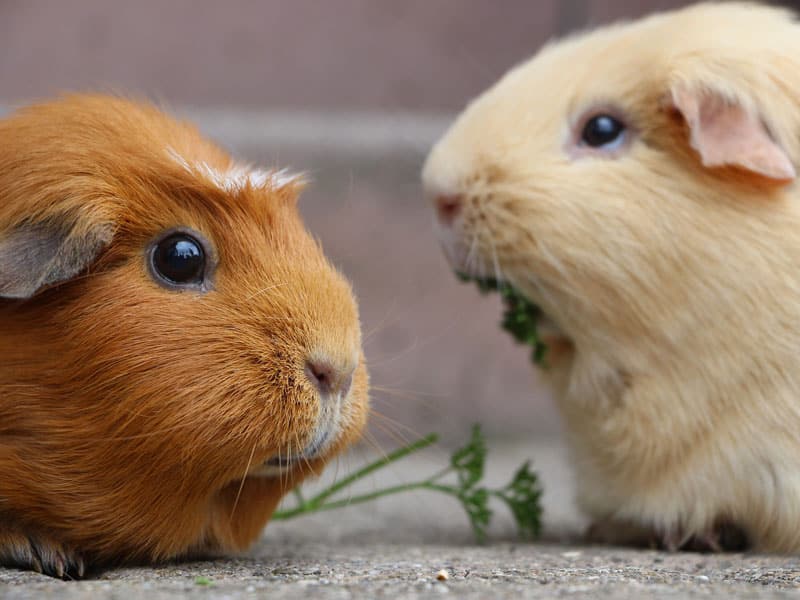
Prevention and Care: Keep Your Guinea Pig from Shaking
Keeping your guinea pig happy and shiver-free is about creating a comfortable environment, and that’s precisely what we will discuss. We’ll delve into effective preventative care strategies to avoid shivering in your furry friend, ensuring they maintain optimal health.
Furthermore, we’ll guide you on when it’s crucial to seek professional help for your piggy, so you can act promptly if their wellbeing is at stake.
Creating Comfort: Keep Your Guinea Pig Happy and Shiver-free
Creating a comfortable environment for your guinea pig is essential to keep them happy and shiver-free. Ensure their cage is warm, dry, and free from drafts. Use plenty of soft bedding for them to burrow into. Keep noise levels low and handle gently. Offering healthy treats can also boost their mood. Remember, stress or discomfort makes a relaxed guinea pig less likely to shake.
Administering Preventative Care to Avoid Shivering in Your Guinea Pig
After understanding how to create a comfortable environment for your guinea pig, it’s time to focus on preventative care. This is key to avoiding unnecessary shivering. Let’s delve into providing proper nutrition, maintaining hygiene, and ensuring regular vet check-ups for early detection of health issues.
Caring for Your Piggy: When and How to Seek Professional Help
You’re likely wondering when to seek professional help for your furry friend. If your guinea pig’s shaking is accompanied by other signs of distress or illness, like loss of appetite, lethargy, or behavioral changes, you should contact a vet immediately.
Remember, early detection and treatment can prevent serious health issues. Your little companion depends on you for their well-being!
Conclusion
Understanding why your guinea pig is shaking can be complex, ranging from natural behavior to serious health concerns. Make their environment comfortable and stress-free; consult an exotic vet immediately if the shaking persists.
Regular check-ups are crucial for early detection of potential issues. Remember, your furry friend relies on you for their well-being!

